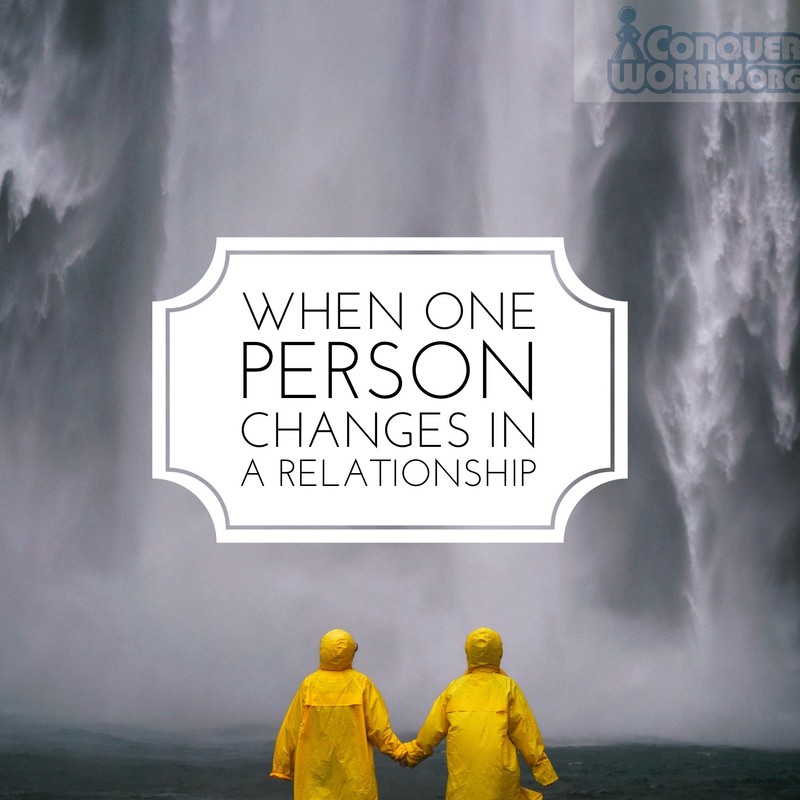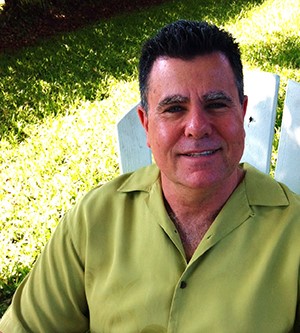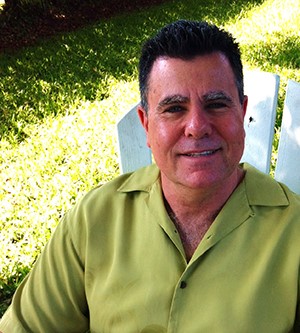|
Article by Irving Schattner Post design and edit by Christy Zigweid Photo by Pexels via Pixabay made using @WordSwagApp When a person in a relationship recovers from addictions (alcohol or drugs, food, gambling, shopping), anxiety and/or depression, it could be said that the person is following a new path. This path may feel scary at times, but when such a person has committed to the change process, their partner or significant other may not fully be aware of how their loved one has changed and how it may impact their relationship. In some instances, one's partner or significant other may welcome these changes as a healthy outcome of couples therapy. They may feel liberated from their partner’s constant need for support, validation and neediness, and can now focus on establishing a more balanced, healthy, and mutually beneficial relationship. In other instances, one’s partner or significant other may find himself or herself resentful and pushing back against the tide of what they see as a person they no longer know or understand. This occurs most particularly when their role as protector, defender, or enabler becomes undermined by this change in their partner. As one partner changes through the therapeutic process, the balance of power can shift one of two ways: Equality, equilibrium, mutual recognition, understanding, and respect come to define this modified relationship. And one partner accommodates to this new arrangement while the other partner finds it difficult or is unwilling to make a change that recognizes the needs of the other. Maintaining a Healthy RelationshipGenerally speaking, it is healthy and necessary for people to adapt to changing circumstances and life events. So, too, it is expected that relationships will change over time. But sometimes partner’s needs change and are not complimentary. Partners may find themselves on different paths or life journeys. So, what can you do when you find that your needs, wants, desires, dreams, or life direction have changed from that of your partner’s? The first thing you might want to consider is acknowledging these changes. Failure to be open and honest with your partner may only lead to a breakdown of the relationship. Perhaps you truly want out of the relationship and are fearful of confronting this fact. If this is the case, your complacency and lack of openness will passively move you towards what you truly want – dissolution of your relationship. On the other hand, if you want your partner to share the new you and your new journey, it is paramount that you share your thoughts and feelings with your partner. To do otherwise, is sabotage of your relationship. It is natural to want to grow and change, and if you want your relationship to survive, even thrive, it is mandatory that you engage your partner in healthy dialogue that lets them know what’s going on inside of you, the personal changes you are making, and how that may impact or shift the dynamics or nature of your relationship. In turn, you should allow your spouse the space, time, and freedom to fully express their thoughts, feelings and needs relevant to the changes taking place. It is worth noting that just because you may not be one-hundred-percent on the same page, does not mean your relationship is doomed. If you feel like you are at an impasse, or simply don’t know where to begin this process of reconciliation, couples therapy can be of great help in defining your respective wants, needs and desires, and examining whether they can be accommodated in your relationship or if it’s time to move on. About the Author - Irving Schattner, LCSWAbout the Author - Irving Schattner, LCSWAbout the Author - Irving Schattner, LCSW
44 Comments
Guest Post by Irving Schattner Edit and Post Design by Christy Zigweid Photo by Antranias via Pixabay made using @WordSwagApp Long-term relationships and marriage require your work, attention, and ability to grow through challenges. Oftentimes couples stay stuck in problematic patterns and are unable to grow together. Drawing from my experience in working with couples, whether married or cohabitating, I’ve identified some reasons why these relationships fail to thrive and ultimately unravel. While this list is not exhaustive, identifying with any of these 7 indicators should give one pause and call forth the need for some sort of intervention. Poor communication Couples who refuse to listen to one another’s needs, desires and life goals, talk over one another, are embroiled in conflict, hostility, blame and /or defensiveness, are basically waging war with the enemy rather than constructively and lovingly engaging with the person who should be their best friend. Couples want to feel safe, cared for, and loved rather than feeling they are embroiled in a war zone. The need of one or more partners to be “right” leads to a judgmental attitude and anger which derail communication and, therefore, problem solving. Conflict avoidance leads to emotional and physical disconnect. Unsuccessful attempts at engagement result in one or more partners giving up and withdrawing. As disengagement intensifies, the relationship is at impasse and requires outside help to re-engage. Addictions and other maladaptive behaviors Addictions and other compulsive and maladaptive behaviors lead to lies and deceit, betrayal, and erosion of trust, hurt and pain. Attempts to placate or pacify the addict lead to denial and co-dependence by the non-using partner who, in effect, becomes part of the problem rather than the solution by bailing out the addicted partner and, consequently, sustaining the addiction. The addiction must be addressed through treatment, as well as support for the non-abusing partner. Laziness and other character flaws Love is based on mutual trust and respect. Lies and deceit, disloyalty, unwillingness to help out their partner, or withdrawal from or avoidance of financial, social, and household responsibilities, shift the burden onto their partner. What should be a partnership of equals feels more like an unbalanced parent / child relationship. Poor boundaries Stepping outside of the relationship to satisfy fantasies and unresolved needs and desires can lead to disengagement from one’s partner and eventual dissolution of one’s primary relationship. It’s important for couples to share their needs, desires, and fantasies with one another rather than an outsider. Once boundaries are crossed, it’s difficult if not impossible to repair the damage and hurt inflicted on one’s relationship. While some partners are willing to work on damage control and repair, for others the hurt and distrust caused by “stepping out” can never be reconciled and are beyond repair. Disrespect A healthy relationship depends on acceptance, appreciation, admiration, and feeling emotionally secure. Hurt and anger undermine the relationship when differences of opinion turn into contempt, criticism, lack of respect, and minimizing or discrediting your partner’s thoughts or feelings. When one or both partners feel mistreated or unfairly judged, there is a tendency to retaliate in kind or withdraw and not share one’s thoughts and ideas. Showing love to one’s partner under these conditions is often difficult. Aggression or explosive outbursts Expressing one’s anger in a constructive way can lead to healthy problem solving. However, when practiced aggressively or with rage, it can invoke fear and avoidance, which undermine constructive communication and can lead to serious physical and emotional abuse. When this occurs, the implicit expectation of safety, security, and trust in the relationship is seriously undermined as things spiral out of control. Together yet apart While it is healthy and realistic to have interests outside of one’s relationship, preferring the solitude of one’s company or the company of others at the expense of sharing activities and free time with one’s partner is a strong indicator of a problematic relationship. Failure to address the emotional and physical needs of one’s partner through shared interests and pursuits, can lead to disengagement from one’s partner and ultimately dissolution of the relationship. About the Author - Irving Schattner, LCSW
|
Build Your Action Based Stress Reduction System
Popular PodcastsOlympian Suzy Favor Hamilton - From Fame to Prostitution to Advocacy
Hall of Fame Basketball Star Chamique Holdsclaw on Mental Resilience Diana Nightingale on her husband Earl Nightingale's Principles for Mental Health Success JoAnn Buttaro on Date Rape & PTSD Survival Story: Its Never Too Late Gabe Howard on BiPolar Advocacy Phil Fulmer on Teen Suicide Prison, Bipolar and Mania with Andy Behrman Columbia Univeristy's Dr. Rynn on OCD Archives
March 2018
Categories
All
|









 RSS Feed
RSS Feed





